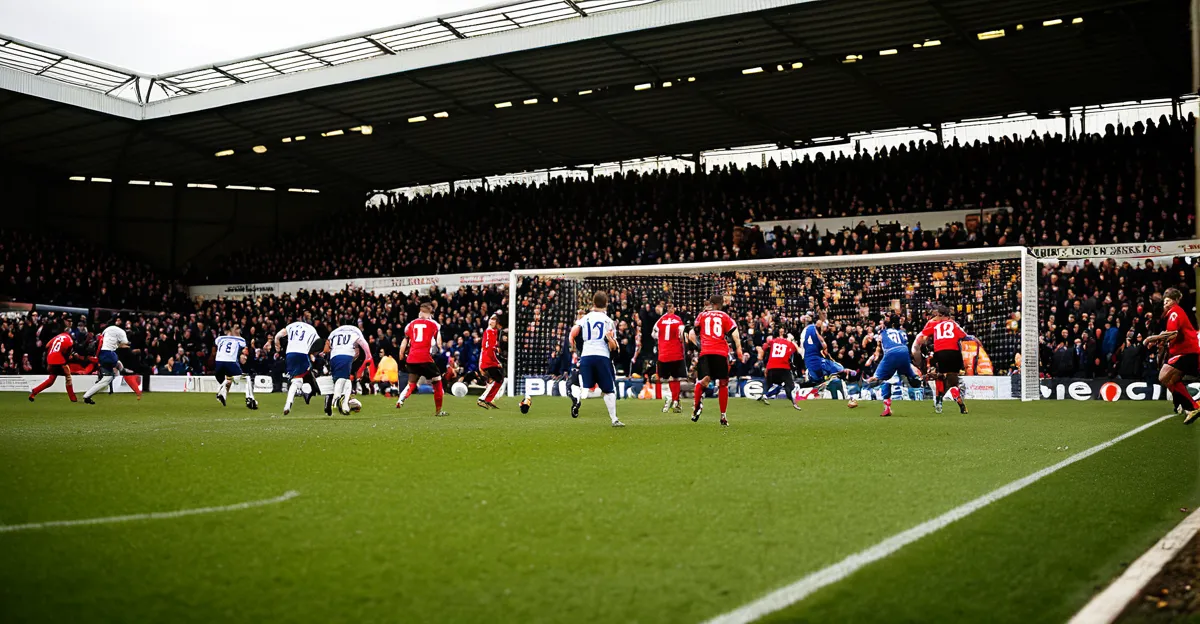British Football’s Role in Shaping Local Identity
British football goes beyond sport, serving as a cornerstone of local community spirit and shaping how people see themselves within their towns and cities. Football clubs, rooted in regional history, have long acted as symbols of a town’s or neighbourhood’s identity. These clubs provide a sense of belonging, drawing people together across social divides.
Historically, football emerged as a working-class pastime in industrial towns, reflecting local pride and shared struggles. Centuries-old rivalries and traditions create lasting connections, fostering shared values anchored in loyalty and perseverance. Supporting a local football club often means representing your community’s history and aspirations, making every match a celebration of place and people.
Additional reading : How Can UK Sports Impact National Unity?
The relationship between British football and community identity is also visible in how fans rally around clubs during both triumph and adversity. Football allegiances inspire unity and authentic emotional investment, reinforcing the club as a cultural and social emblem. This unique dynamic fuels a powerful local identity, often sparking lifelong passion and bonding generations within the community.
Social Bonds and Community Togetherness
Football clubs act as vital hubs for social interaction, especially on matchdays when fans converge to support their teams. These gatherings foster community unity by creating shared experiences that transcend age, background, and social status. The electric atmosphere in stadiums and surrounding pubs offers more than entertainment—it builds lasting social bonds.
This might interest you : How does the UK sports industry tackle diversity and inclusion?
Fan traditions, such as singing club anthems or donning team colours, play a crucial role in strengthening communal ties. These rituals are passed down through generations, aiding intergenerational connections and nurturing a sense of belonging. For example, grandparents often bring grandchildren to matches, creating shared memories anchored by football culture.
Football’s power to connect people extends beyond the pitch. It creates informal networks where friendships are formed, and support systems develop, especially in communities facing social challenges. This camaraderie contributes significantly to a robust local community spirit, making football clubs essential pillars of social cohesion. In essence, football is not just a game but a dynamic social force fostering togetherness and resilience.
Economic Impact of Football on Local Communities
British football generates significant economic influence in local areas, primarily through the bustling matchday economy. On game days, football matches attract thousands of fans, who spend money on transport, food, and merchandise, directly benefiting local businesses such as pubs, restaurants, and shops. This surge in consumer activity boosts revenue, making football a major economic driver for towns and cities.
In addition to retail, football clubs create employment opportunities beyond the players and coaching staff. Jobs linked to stadium operations, security, hospitality, and merchandise sales are vital sources of income for local residents. Employment tied to football events helps sustain the local economy and supports families within the community.
Football institutions also often lead regeneration projects, improving infrastructure and public spaces around stadiums. Investment in these projects can revitalize neglected urban areas, attracting further business and enhancing community wellbeing. This cyclical effect strengthens both the economic resilience and the social fabric of football towns, demonstrating how British football extends its impact far beyond the pitch.
Football-led Community Initiatives and Outreach
Football clubs in Britain actively engage in community initiatives that extend their influence beyond sport. Many clubs sponsor youth programs designed to promote inclusion, health, and education. These initiatives offer young people positive environments to develop skills, build confidence, and foster teamwork. By targeting diverse groups, football acts as a bridge to bring communities together and reduce social barriers.
Charity work forms a major part of football clubs’ social outreach. Clubs regularly organise fundraising events, collaborate with local charities, and support causes like homelessness, mental health, and disability inclusion. This proactive engagement demonstrates football’s capacity to address pressing social challenges and build stronger communities.
Moreover, football serves as an effective tool for education and social change. Clubs often run workshops, awareness campaigns, and mentoring schemes that empower individuals and promote important values such as respect and equality. Through these community initiatives, British football reinforces its role as a driving force for positive impact, shaping not only athletic talent but also inclusive, resilient societies. The sustained commitment of football organisations to social outreach advances a robust local community spirit that resonates deeply with fans and residents alike.
Real-Life Examples and Testimonials
Real-life case studies highlight how British football profoundly impacts communities. For example, FC United of Manchester focuses on fan ownership and community empowerment, creating a club that champions local values and inclusivity. Their initiatives provide social spaces where residents feel a genuine sense of belonging and actively contribute to local community spirit.
Similarly, the Celtic FC Foundation runs extensive projects addressing youth development, education, and health. Testimonials from local residents emphasize how such efforts foster pride and improve wellbeing. One fan shared, “The club’s programs gave my children opportunities they wouldn’t have had otherwise, strengthening our community ties.”
These examples underline football’s multifaceted role beyond the pitch. Clubs serve as anchors for social interaction, economic support, and charitable work, amplifying their influence through community initiatives. Supporters often testify to feeling more connected not only to the club but also to their neighbourhoods, reflecting football’s unique power to unite and uplift diverse populations.
Together, these stories demonstrate a consistent pattern: British football shapes both identity and communal resilience by harnessing deep-rooted allegiances and converting them into meaningful, real-world benefits for local people.







